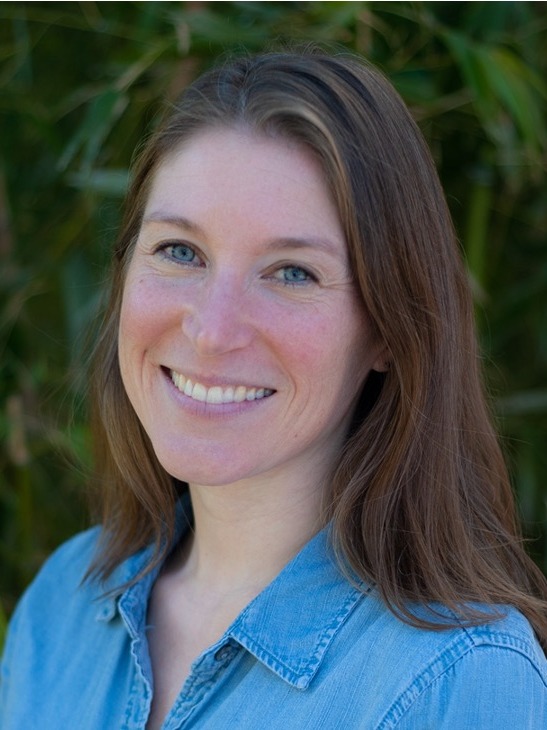Marie Haverfield
 |
Associate Professor
Keywords |
Current Research Activities
The main question that drives my research is, "What features of interpersonal communication enhance individual health and well-being?" I examine this question in both the health and family contexts. In health, I explore features of patient-provider-caregiver communication and how these communication behaviors and patterns impact individual health outcomes including mental and physical health as well as health care utilization and health management such as medication adherence. In the context of families, I am interested in how communication within a family system, particularly families that are considered high-risk (e.g., parental substance misuse), influences offspring developmental outcomes including mental health, substance use behaviors, and resilience. I employ mixed-methods and frequently collaborate with health care systems (i.e., Veterans Affairs Palo Alto Health Care System, Stanford University School of Medicine, Santa Clara Valley Medical) and organizations pertaining to my research interests (i.e., Al-Anon World Services). My research goal is to implement programming (e.g., workshops, material resources) that facilitates change in communication behavior and promotes improved health and well-being.
Research Connections to Current Events
I am working on two projects that directly address current events. First, my Co-Investigator role on the Presence for Racial Justice study explores communication strategies that protect against anti-black racism in medicine. Specifically, we are partnering with four community clinics, that predominantly serve Black patients, to conduct interviews and focus groups with patients as well as providers to better understand the communication behaviors that positively and negatively affect Black patients. As part of this project, we also created a Community Advisory Board with clinic representatives from across the nation. The goal of this research is to develop educational programming for providers and resources for patients that enhance clinical interactions and reduce anti-black racism in medicine. Another project that directly addresses current events is an international survey study, of which I am Principal Investigator, about family rituals and resilience during the COVID-19 pandemic. The survey explores family rituals pre- and post-shelter-in-place in both the U.S. and Israel to examine how and which type of rituals foster resilience amidst the many challenges resulting from the pandemic. Findings will inform cultural differences in the way family is defined, the ritual behaviors that family’s practice, and how family rituals are associated with perceived ability to cope. This study extends theory on family systems and family rituals in terms of their utility to protect family’s against unexpected (non-normative) stressors and will support the development of practical recommendations that promote family rituals associated with greater resilience.
Personal Connections to Research
Three personal factors contributed to my RSCA pursuits: societal issues impacting relationships and health, scholarly partnerships, and student involvement. Following the death of George Floyd and the reigniting of the Black Lives Matter movement, I was deeply moved to act. I wanted to help support the mission of the Black Lives Matter movement and address the historical mistreatment towards people of color. As such, I was eager to participate in a successfully funded grant that examines and works to eliminate systemic racism in medicine, particularly towards Black patients. Another societal issue that I was eager to address was the pandemic and the subsequent challenges families faced. As I reflected on my own struggles during the pandemic, managing the care of two young children in a dual-income household, I noticed the rituals that helped us to maintain family function and resilience. Then I began to wonder how other families, particular those who experienced greater adversity during the shelter-in-place transition, used rituals to cope. Fortunately, I have a network of colleagues that are also invested in addressing these societal issues. My colleagues at Stanford University, School of Medicine, led the effort in developing the Presence for Racial Justice study to improve care of Black patients. The international survey to examine family rituals and resilience was made possible through my relationships with other family communication scholars. I contacted my colleagues at the University of Oklahoma and the University of Haifa to express my study idea to which they enthusiastically agreed to collaborate. Given the scope of these projects, I also wanted to include undergraduate and graduate student involvement. Multiple undergraduate and graduate students are supporting the Presence for Racial Justice program by coordinating interview and focus group recruitment, scheduling, and analyzing study data. I also incorporated a class assignment in my Advanced Family Communication course, where graduate students conducted a content analysis of the survey data, from operationalizing categories to coding and analyzing data, and wrote a paper to report their findings. Several students from this course are now co-authors on a manuscript stemming from this research.
Social Media